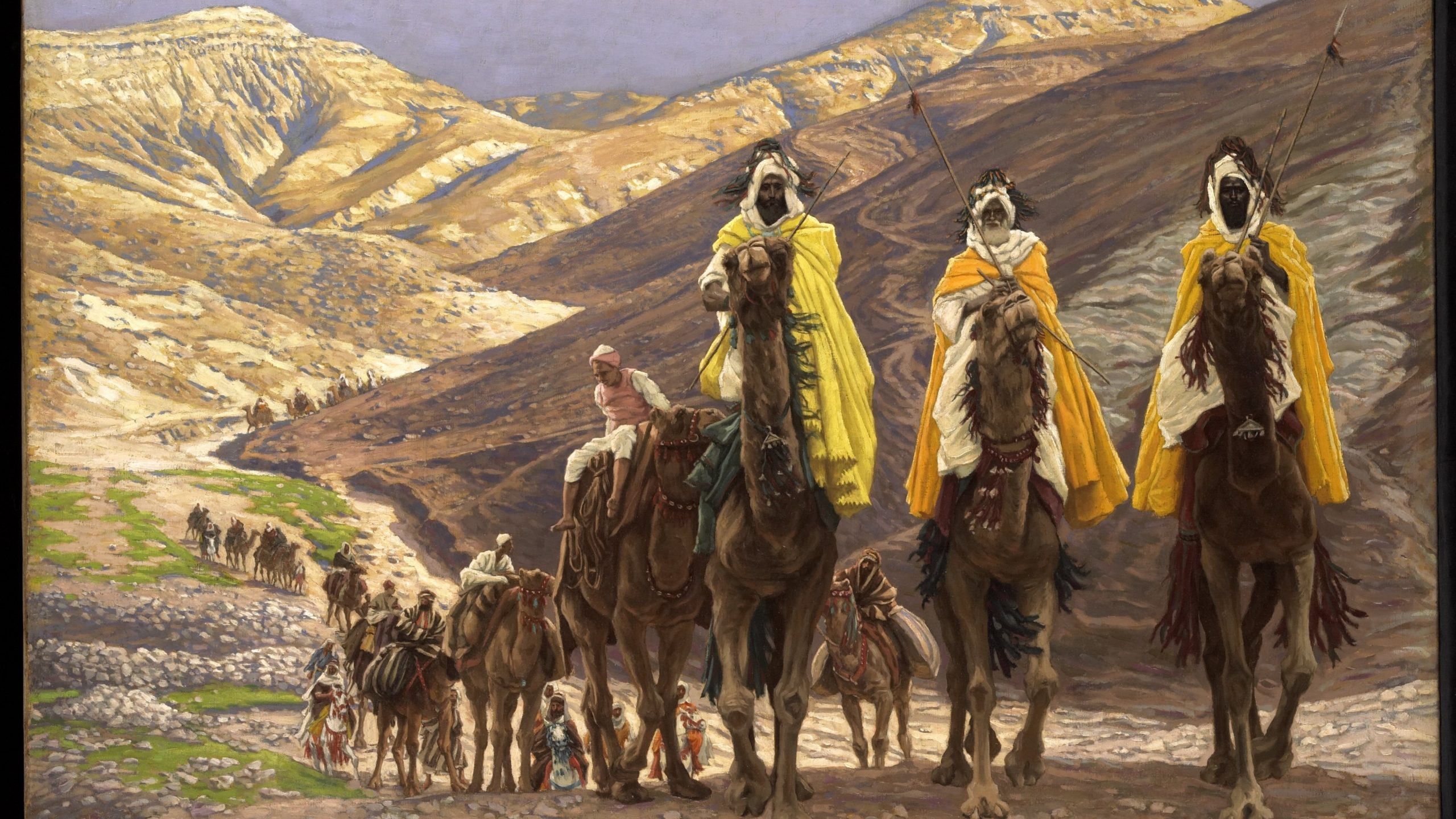
Isaiah 60:1-6
Epiphany ABC
1 Arise,A shine;B for your lightC has come,
and the gloryD of the LordE has risenF upon you.
2 ForG darknessH shall coverI the earth,
and thick darknessJ the peoples;K
but the Lord will ariseL upon you,
and his glory will appear over you.
3 NationsM shall come to your light,
and kings to the brightnessN of your dawn.O
4 Lift up your eyes and look around;
they all gather together, they come to you;
your sons shall come from far away,
and your daughters shall be carried on their nurses’P arms.Q
5 Then you shall see and be radiant;R
your heartS shall thrillT and rejoice,U
because the abundanceV of the sea shall be broughtW to you,
the wealthX of the nations shall come to you.
6 A multitude of camels shall coverY you,
the young camels of MidianZ and Ephah;AA
all those from ShebaBB shall come.
They shall bring gold and frankincense,CC
and shall proclaimDD the praiseEE of the Lord.
Image Credit: “Journey of the Magi” by James Tissot, circa 1894, French.
